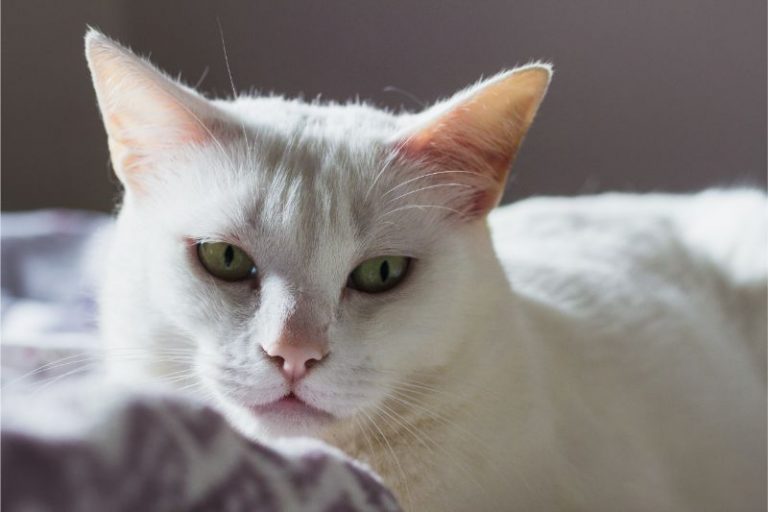Cats are pretty self-sufficient, but they still need our help in many ways. When it comes to protecting them against infectious diseases, there is plenty a proactive cat owner can do to help their feline family members stay healthy.
In particular, serious retroviruses such as those that cause feline leukemia and FIV (feline immunodeficiency virus) are a concern. Maywood Veterinary Clinic knows how important your cat is to you and wants to be sure that your knowledge is up to par on these potentially fatal diseases.
Not Exactly Leukemia
Many people have been touched by human leukemia. While feline leukemia (FeLV) is also a very tragic disease, it isn’t exactly the same thing.
Feline leukemia is actually caused by a retrovirus (think similar to HIV in people) whereas human leukemia is purely a cancerous process.
A cat can be exposed to feline leukemia virus through contact with the bodily fluids of an infected cat during grooming, fighting, or even from its mother. The virus enters the body where the immune system has a chance to fight it off. Thankfully, many healthy, normal cats are able to do so. Some partially fend off illness but can remain infected and spread the disease.
If the exposed cat is not able to fight off the virus, it enters cells in the body. The virus eventually causes the death or serious mutations of cells, many times resulting in cancer such as lymphoma. Sometimes the virus can hide for many years in the bone marrow before emerging as an issue.
Feline leukemia virus also suppresses the immune system, making infected cats prone to other diseases.
If a cat becomes infected with FeLV, the disease is very often fatal as there is no cure to date. In fact up to 90% of infected pets will die within four years of diagnosis.
FIV in Cats
Feline immunodeficiency virus (FIV) is yet another nasty cat disease caused by a retrovirus.
FIV is transmitted through the introduction of infected bodily fluids into the tissues. Most often this happens through a bite wound, making outdoor male cats who are prone to fighting at the highest risk.
FIV shares many similarities with human immunodeficiency virus, causing suppression of the immune system and subsequent serious consequences from things that are normally no big deal. Even a minor upper respiratory infection can have serious effects on a cat infected with FIV.
While many cats with FIV live fairly happy, normal lives, it is important that we support their immune system and protect them from infection in any way possible. This makes good preventative care such as vaccines and parasite prevention even more important.
Protection From Feline Leukemia and FIV
Feline leukemia and FIV are scary, but knowledge is power, and there is a lot you can do to protect your pet.
- Keep your cat indoors if at all possible.
- Consider vaccinating your cat against feline leukemia (generally recommended for cats under two years of age and those at high exposure risk).
- Do not introduce new cats into your home prior to testing for feline leukemia and FIV – call us before bringing home that stray kitten!
- Spay or neuter your outdoor cat to decrease exposure during breeding/fighting.
- Test your cat periodically as recommended for FeLV/FIV- knowing that an infection is present can help us to help your pet.
We hope that you never encounter feline leukemia and FIV in your own cat, but we hope that you find comfort in knowing that our caring staff is here for you no matter what. We might not have the science to cure these diseases at this point, but we certainly have the compassion and knowledge to help your cat live the longest, healthiest life possible.


